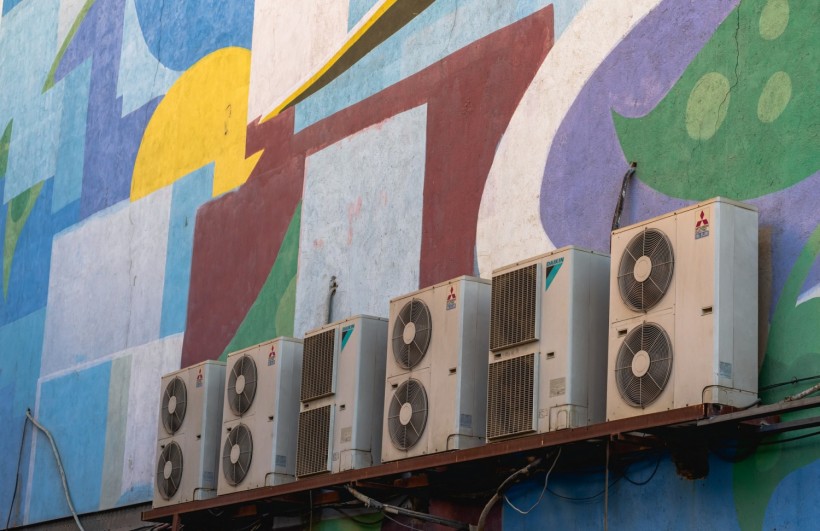Energy is one of the most dynamic elements of modern society. Because energy is an essential consumer item, there is no way to avoid using it. Thankfully developments like renewable energy offer consumers a less costly and more environmentally friendly energy source. After Hurricane Katrina, Thomas Neyhart, founder, and CEO of PosiGen discovered that a great way to help low-income communities spend less on energy was to provide an energy-saving option that cuts deep into energy costs in these communities.
PosiGen CEO Thomas Neyhart had an original idea to help low-income communities gain access to renewable energy by providing these communities with solar panels as a renewable energy source. However, PosiGen did not stop there; to further help families save, PosiGen began to offer energy efficiency upgrades. The average homeowner loses a large amount of energy through leaks that are usually structural; by providing energy efficiency upgrades, PopsiGen created yet another efficient way of saving money for homeowners.
PosiGens' primary goal is to help homeowners save money. One of the easiest ways to do this is to make conscious changes to energy consumption practices. In this article, PosiGen CEO Thomas Neyhart has provided an essential guide to help homeowners approach energy consumption to save them money.
To understand energy consumption and how it affects savings, it is essential to understand energy consumption as a concept. Essentially, Energy consumption refers to the amount o energy measured in kilowatts your house consumes within a month. According to The EIA (Energy Information Administration), the average home in America consumes 893 kilowatt-hours. The amount of energy consumed is usually dependent on factors like the size of the house, the number of people that live in the home, the appliances that are used in the home, the volume of activity within the home, and the timing of activities. Reducing your energy consumption involves taking all of these factors into consideration in order to find balance.
Thomas Neyhart Recommends Energy Efficient Appliances
With the right appliances, it does not matter that all your cousins have come to visit. You can guarantee that your consumption will only go up so much. Appliances are responsible for roughly 13% of total energy consumption on average. When purchasing appliances, it is essential that you carefully consider the original purchase price and the annual cost of its operation. Another good tip for picking out appliances is to look out for an Energy Star label. Energy Star labels guarantee that an appliance will consume less energy in its use than standard models. Gradually swapping standard-issue appliances for energy-saving appliances is a great way to eventually put a cap on the amount of energy consumed.
Another efficient way to cut down energy consumption is to use cold water when you can. A lot of energy is consumed by constantly heating water. It is a great option if you can afford to purchase an energy-efficient water heater. If you cannot afford to, however, there are other alternatives. The first option is to use less hot water. You may decide to use hot water for showers only and use cold water for laundry and dishwashing. This reduces the amount of time your water heater spends working and reduces your bill. Another simple solution is to turn down the thermostat on your water heater. If you can afford it, insulating your water heater and a considerable length of the hot and cold pipes is an effective way to help reduce the energy consumption from your heater.

HVAC System
Working on your HVAC system is a great way to regulate energy consumption in your home. Heating, Ventilation, and air conditioning equipment are significant consumers of energy. Over 40% of energy use in a home comes from heating alone. The best option for managing HVAC consumption is to purchase energy-efficient equipment. There are other viable options for reducing energy consumption from HVAC systems. Upgrades to your home's ventilation system can make all the difference as far as HVAC systems are concerned. A ventilation system is the network of air ducts that distribute hot and cold air around your home. It is not unusual for these ducts to have minor leaks in them that reduce their efficiency. Experts speculate that tiny leaks in a ventilation system can lead to a 20 to 30% loss of the output of a compressor. With proper insulation and frequent maintenance, you can save hundreds of dollars monthly that would have been lost through leaks. If you cannot afford to change your HVAC equipment, a ventilation system maintenance and upgrade may be able to provide close results in terms of savings.

Thomas Neyhart on Energy Efficient Lighting
Using energy-efficient light bulbs is one of the easiest ways to cut down on energy consumption. By replacing just five of your most commonly used bulbs, you can save up to $75 with your energy-saving light bulbs. You may consider Halogen incandescent bulbs, compact fluorescent lamps (CFLs), or light-emitting diode bulbs (LEDs). All of these light options use from 25-80 percent less electricity and last 3 to 25 times longer than traditional bulbs. You can also save some money by switching off any lights you are not using.
Invest in a Programmable Thermostat
A lot of energy in homes is consumed passively. When you are away from your home, asleep, outdoors, you can avoid wasteful energy use without upgrading your entire HVAC system. A programmable thermostat can be set to reduce or turn off heating and cooling when you are away from your home. By installing a smart thermostat, you cut down your energy consumption significantly. If you are willing to dig a little deeper into the bag, you may choose to get a programmable thermostat that alerts you if there are any issues with your HVAC system or if your air filters need changing.
Thomas Neyhart quickly recognized that a dollar not saved by a low-income family is a dollar that can be spent on something essential. "We have approached solar and energy efficiency in a radically new way. We believe that people who have the lowest incomes need the savings the most. These savings can go towards buying school supplies, children's clothing, and groceries." says Thomas Neyhart. Saving money by cutting down energy consumption has been made considerably easier for low-income communities by companies like PosiGen. There is still a significant part for homeowners in these communities to play, especially as it concerns energy consumption habits.















